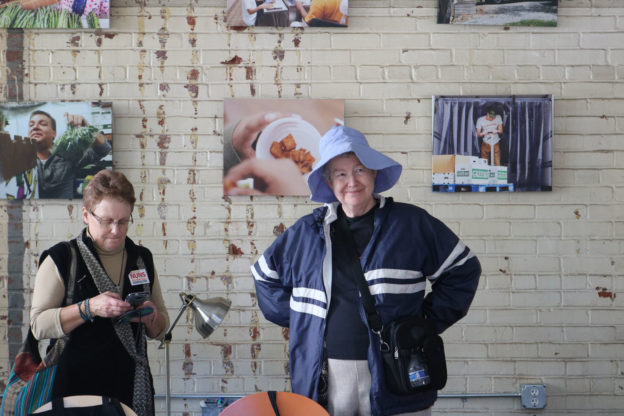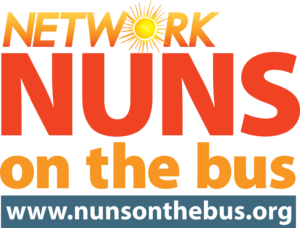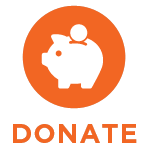
Travel Log: Raleigh and Durham
Sister Julie Krahl, CSA
October 29, 2018
Raleigh, North Carolina
At 9:00 the bus pulled in front of a nice-looking, small business-type building, the Women’s Center of Wake County. Its nondescript look denied its role as ‘home’ for women looking for safety and stabilization. With the leadership of Brace Boone, III the Women’s Center is a day program aiming to prevent and end the homelessness of women. We met welcoming staff working in rooms made beautiful and calm by the art and design. We saw spaces that addressed the physical and mental health concerns of the women, spaces that held safe their personal belongings, spaces for calm and comfort, spaces with a piano, spaces for eating plentiful and nutritious meals. We heard of programs providing clothing, cleanliness, coffee and laughter. We heard of ever-expanding resource and revenue sources for the program and the individual women; individuals, businesses, HUD. There is no space or intent for the women to sleep inside, they are a day program. Yet, women sleep outside at night.
And we met the women. Dorothy and Kathy spoke of warmth, multiple points of ease and access to local resources connecting them to hopes and plans for recovering and for securing life. And this was ‘home’ until then. Our hour in that building brought us to know and feel that this was not a simple space but a thriving yet struggling community creatively and powerfully taking care of each other. The Women’s Center of Wake County truly is a responsible program working successfully for the common good. A program worthy of the support of our taxes.
We walked out of the building to a rally in front of the bus that featured inspiring talks from Brace, Sr. Simone, Sr. Donna, and Rep. David Price (NC-04). What we heard further highlighted the need for this program, the need for reasonable taxes for responsible programs. We present further understood the need to vote for officials that have the willingness and courage to 1) work for progressive taxation and 2) expand programs that work for the common good of ‘we, the people’ And the bus grew with more signatures.
Durham, North Carolina
Our afternoon began with a sunny walk in a garden. It looked lovely and simple enough with a variety of trees and flowers and plants. Then subtleties of organization became apparent: plowed rows of plants raised to efficiently improve the irrigation system, food plants in stages of harvest. Then the inter-related complexity wowed us: solar panels on the green house, flowering plants for the bee hives across the street, compact and nutritious food sources, diverse vegetation encouraging volunteer care, old bicycle tires beautifully repurposed to support sunflowers and climbing berries, composting organic waste from the nearby food distribution center, a community contributing to and receiving many benefits. Awesome! And symbolically representative of the site we were visiting: Farmer Foodshare.
It looked lovely and simple enough: cool building, neat trucks, and friendly people. Then we noted the subtleties of organization: efficacious use of historical space, flexible scheduling and appropriate tools and resources to manage the ebb and flow of the bounty and the needs. Then three women shared their perspectives with us and the inter-related, interdependent complexity of the three partnering social service agencies wowed us. With food access and food justice as paramount to their work, Gini Bell, Quisha Mallette, Camryn Smith explained how they organized the community to build pathways out of food insecurity. They created a robust community-response to the multiple identified food challenges with avenues for cooperative economics. It was expansive. Gathering, storing, distributing local-grown and prepared foods; connecting farmers, neighbors, seniors, school children; educating for nutrition, sources of food, food tastes, ecology; remodeling and utilizing vacant neighborhood buildings; securing local and federal (ie. USDA) sources of revenue, employment, community involvement. The result—reliable, consistent access to fresh, diverse food provided and enjoyed by the community through their own ingenuity, efforts, and resources.
And we were awed. What a garden! What powerful community action! What a responsible program!
The nuns and the leaders walked outside, and with the crowd gathered, shared goals and new understandings of ‘we, the people’ successfully working for the common good. We encouraged voting to get reasonable taxes to develop responsible programs. And the bus grew with more signatures.










